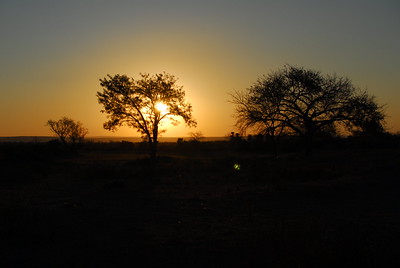 Image credit F Mira / Flickr https://creativecommons.org/licenses/by-sa/2.0/
Image credit F Mira / Flickr https://creativecommons.org/licenses/by-sa/2.0/
The Concerning Rise of Terrorism in Mozambique
While the world’s attention has been hyper-focused on the COVID-19 outbreak and how best to handle it, the world has not stopped turning. One of the news stories that hasn’t gotten much attention, but can have a real impact on international security, is the growth of terrorism in Mozambique.
What’s Happening?
The insurgency in Mozambique is a conflict between the Mozambique government and Islamist militants in the northern most province of Cabo Delgado. Similar to other Islamist groups around the world, the main goal for the insurgents in Mozambique is to establish an Islamist state in region.
The insurgents come mostly from Ansar al-Sunna. Ansar al-Sunna started as a religious organization in 2015 and did not become militarized until 2017. The early members of the group were followers of Aboud Rogo Mohammed, a radical Kenyan cleric who was shot and killed in 2012. Originally the group settled in southern Tanzania but quickly migrated further south into Mozambique where the group has found the conditions in Cabo Delgado – a large Muslim population, high youth unemployment, and poor economic development – to be a fertile environment for the group’s development.
Attacks in Cabo Delgado began in 2017 in the town of Mocimboa da Praia but have since spread to seven other districts that cover one-third of the provinces territory. Over the course of the last few months attacks have become more high profile. In March, insurgents briefly took control of Mocimboa da Praia, burned government buildings, and publicly displayed an allegiance to the Islamic state. The next day, insurgents raided another town and reportedly killed twenty to thirty members of Mozambique’s security forces. On April 7, 2020 more than fifty villagers were killed by insurgents after the villagers refused to join the militant group.
What’s the Big Deal?
First, the most important consequence of the insurgency is the potential staying power it has. The Fund for Peace’s Fragile States Index 2020 report ranked Mozambique as the 27th least stable in the world, meaning it is at high risk of failure.
Dennis Jett, a former US Ambassador to Mozambique, wrote in March that Mozambique has “become a borderline failed state, its democracy a sham, and its energy riches won’t guarantee that its security or governance will improve in the future.” Adriano Nuvunga, the director of Mozambique’s Centre for Democracy and Development, said “Apparently, the state does not have either the capacity or the motivation [to fight the insurgents].”
The poor governance and seeming lack of interest in fighting the insurgents, coupled with the poor conditions in Cabo Delgado, could mean the insurgency is here to stay.
Second, Mozambique’s insurgency – and the difficulty the government in Maputo is having quelling it – could also have severe consequences for its energy resources. Off the coast of Cabo Delgado lies the world’s largest liquid natural gas (LNG) field, which has caught the attention of major international energy companies like ExxonMobil since the field’s discovery in 2011.
ExxonMobil was slated to begin natural gas production in 2025 but that date may be pushed back by several years. The increase of insurgent violence only adds more complications to an already hurting LNG market. COVID-19 is has forced a seismic downturn in demand for commodities such as natural gas. Huge multi-national energy companies, like ExxonMobil, are taking notice: earlier in April ExxonMobil announced it would delay a final decision on investing $30 billion in a Mozambican LNG project as the oil crash forced the company to make spending cuts.
External shocks to the global economy like COVID-19 have already tanked demand for LNG but increasing insurgent violence will further hurt the ability for Mozambique to reap the financial rewards of its LNG resources.
Finally, the spread of terrorism to Mozambique is evidence of a growing trend in terrorism fanning out across the entire continent of Africa. In the Western Sahel, Islamic insurgent groups like Boko Haram and the Islamic State’s West African Province have destabilized the entire region. Across the continent in the Horn of Africa, al-Shabaab has been fighting in Somalia for more than a decade. Terrorist groups are also operating in Egypt, Libya, Mali, and the Maghreb (Mauritania, Morocco, Algeria, Tunisia, and Libya) region of Africa.
Overall, the conflict has killed hundreds and displaced 100,000 since it began in 2017. However, as the world has become focused on responding to COVID-19, the violence in Cabo Delgado is evidence that security issues don’t come in isolation. One external shock can have strong repercussions elsewhere.





